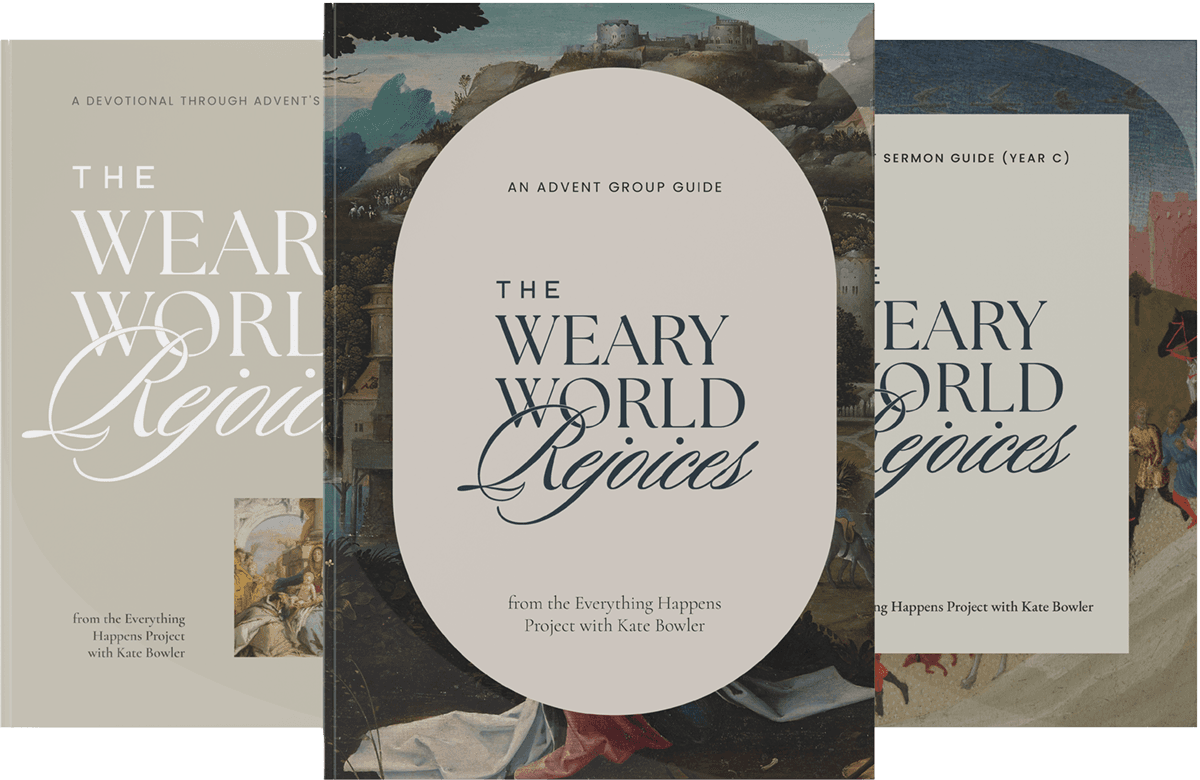Discussion Questions for Raising A Rare Girl by Heather Lanier
Join us for the Everything Happens Book Club. Learn more here.
1. Heather Lanier tried to make a SuperBaby. Instead, she made Fiona. Her gorgeous memoir, Raising a Rare Girl, challenges the quest for developmental perfection and celebrates the ordinary miracle of being human. What’s one thing you want to celebrate about Heather’s story?
2. When Fiona is born weighing less than expected, a pediatrician explains, “It’s either bad seed…or bad soil.” In other words, her newborn is a bad plant. The encounter sets her off an a path to reclaim as good what the world thinks wrong. How does she do this? How do you do this?
3. Heather has a brief but basal urge to give her daughter back after a doctor suspects Fiona has a syndrome of some kind. “Even as I wanted the uncertainty of our lives batted straight out of my life,” Heather writes, “I also wanted the reason for that uncertainty—my daughter—so close I could take her back into me.” Do you ever feel a similar tension in caregiving? What do you want to push away? What do you want to draw close?
4. Mental retardation is different than intellectual disability. A genetic defect is different than a genetic deletion. (Not to mention the categorizations of idiot, imbecile, and moron.) When a resident uses choice words to frame Fiona’s diagnosis, Heather sees how flexible our view of reality—and what bodies are worthy—can be. What word has changed the way you see the world?
5. For Heather’s Zen-monk-turned-Episcopal-priest husband, the gold-standard for a life worth living is not intellectual ability but spiritual receptivity. Do you agree? What do you think is necessary for a fully realized life?
6. Normal’s not just a socially-constructed virtue. It’s also a community of belonging. Throughout the book, Heather envies the parents of normal, able-bodied babies, even as she takes aim at the idea of normalcy itself. What’s so seductive about normal? What’s so freeing about diversity?
7. Pregnant with a second child, Heather is faced with her fear of the unknown and desire to know, will this baby be designed like the first? After a gut-wrenching decision, Heather realizes, “There’s no way to make love easier.” How do you try to make love easier? How do you try to embrace vulnerability?
8. Communication is a fundamental human right. A therapist embodied this powerful ethos when she helps Heather see it’s not a matter of if Fiona can communicate but how and when. When has a doctor, nurse, therapist, or caregiver been an advocate for y/our humanity?
9. By the end of the book, Heather comes to understand that “Fiona’s body was factual, a circumstance. Her fourth chromosome was as much a problem as gravity, which meant not at all.” What difference does it make whether we see disability as flaw or fact? What difference did it make for Fiona?
10. “Maybe we give up so we can fully receive,” Heather reflects in the Epilogue. “Maybe we give up so we receive something better than what our small minds had wanted.” What did Heather have to give up so she could more fully receive? What will you have to give up so you can receive something better than you ever wanted?
Bonus: After reading Raising a Rare Girl, what part of the book resonated with you most? What insight will you carry with you?
Discussion Questions written by author, editor, and facilitator Erin S. Lane.

